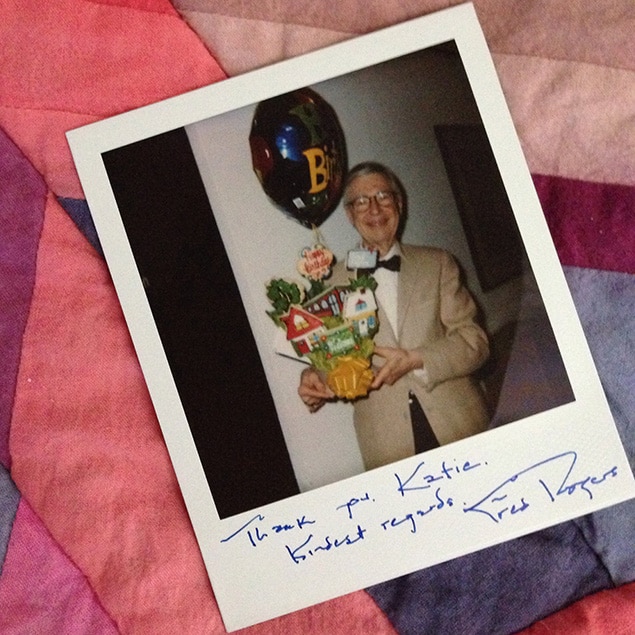 When Mister Rogers Wrote: Being Different Is Good
When Mister Rogers Wrote: Being Different Is Good
I never would have thought that Fred Rogers in his blue sweater behind the screen would be the one, the only one, who taught me that being different is good, and that if you are different or have a disability, be proud of it. I was born with one arm, and never gave it much thought because my family acted like it was no big deal. So when I started daycare, I was not prepared for kids making fun of me. Even at that young age of, gosh, I must have been three or four, it was Mister Rogers, on his show Mister Rogers’ Neighborhood, who gave me the confidence to know that being different is good and something to be proud of. I remember sitting in front of the TV really close to the screen, so close that I could touch his sweater, and time and time again he said,”Boys and girls, isn’t it good that we are all different? If we all were the same, think how boring it would be. If you have something that makes you different, be proud of this. I am proud to know you.” That calm, low, reassuring voice of his was laced with such confidence and assuredness.
Years later in high school, I decided to write Mister Rogers to thank him for the many ways he had helped me, and he wrote back! In his first letter to me, he wrote, “What you told me about yourself reminded me of one of our songs in our musical story about Josephine the Short-Necked Giraffe: “You’re much more than your neck.” Well, Katie, you certainly are much more than your one arm. … I’m proud to know you.” He understood that a disability doesn’t define a person. Just the fact that he had a character on the show named Josephine the Short-Necked Giraffe showed that he got it.
He also taught me to have poise, dignity and composure when kids were making fun of me. He reflected on this in his first letter to me when he wrote, “I can only begin to imagine some of the difficult times you’ve had, and it was heartwarming to know that you would often think of our Neighborhood messages about being kind to others, especially at times when children were making fun of you.”
I wrote him back, and then he wrote again. Over the next five years, we exchanged so many letters that I lost count. Now they are all neatly organized in a binder in chronological order. You can see at one point where he transitioned writing the letters on a word processor to a computer. I received his last letter in January 2003, just shy of exactly a month before he died. I didn’t know that he was battling cancer, nor did I know this would be his last letter, but I think he knew. He ended his last letter with, “Katie, all of your friends here in this Neighborhood wish you deep peace and simple joys – – both given and received.”
Mister Rogers, I’m proud to know you.

